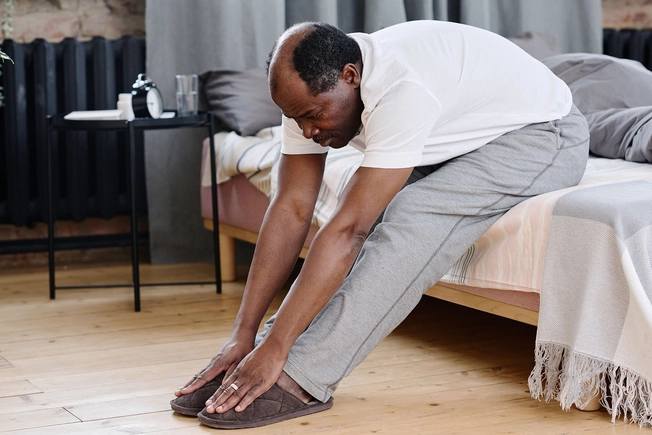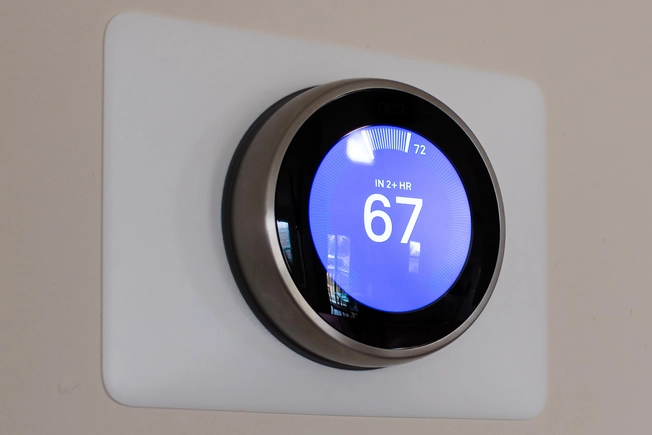Lupus: Tips and Tricks to Get Through Your Day

A Day in the Life With Lupus
Life with lupus is unpredictable. Flares of this chronic autoimmune disease come and go. When a flare hits, it can drain your energy and turn your usual routine upside down. Though you can't always predict when you'll have symptoms, you can learn to manage them. Try these simple tips, tools, and hacks to make every part of your day go more smoothly.

Be Patient With Yourself
The days when you could hop right out of bed in the morning may have ended when lupus arrived. About 90% of people with lupus feel extra tired, even when they sleep well at night. Morning joint stiffness is another common symptom. Give yourself extra time to get up in the morning. A few stretches and a warm shower can help you get moving.

Try Yoga
Yoga is just the thing to loosen tight muscles and ligaments and reduce inflammation. The slow movements of hatha and restorative yoga are best for lupus because they're gentle on sore joints. Avoid hot yoga, which can increase inflammation and dehydrate you. If you're not a fan of yoga, do another type of exercise. Any movement helps to increase flexibility, protect your heart, and improve your mood.

Take a Seat
Even a little bit of effort can feel like too much when you're fatigued. If showering tires you out, take a bath instead. Or sit in a shower chair to save your energy. Keep seats in other rooms, too. Put one in the kitchen to use when you cook and another in the bathroom for your morning routine.

Keep a Journal
A journal will help you learn more about your lupus and its triggers. Every day, write down your symptoms and what you were doing when they started. In time, you should start to see patterns. Share the journal with your doctor at each visit. Your notes will help your doctor track your progress and adjust your treatment plan when needed.

Protect Yourself From the Sun
Up to 70% of people with lupus are extra sensitive to ultraviolet (UV) light. If you're one of them, sun exposure could set off a flare. You don't have to stay indoors, but before you go outside, cover your skin with a sunscreen of SPF 30 or higher. Put on a wide-brimmed hat, sunglasses, and long sleeves for extra protection. If you're also sensitive to indoor lights, use lower-intensity bulbs.

Embrace Apps
Lupus brain fog is real. Up to 80% of people with lupus struggle to think clearly, remember things, solve problems, and multitask. Let technology do the heavy mental lifting for you. Use apps to organize your to-do lists, keep track of your symptoms and doctors’ appointments, and manage your medications. Set reminders so you don't forget anything.

Learn to Say "No"
Life doesn't stop when you have lupus, but it does slow down a bit. You may need to take more breaks during the day, stay home from work sometimes, and pass on some social activities. The longer you live with this disease, the more you'll get to know your limits. Be honest with your employer, family, and friends, so they'll understand when you do have to say "no." They might even offer to help out.

Plan Meals for the Week
An anti-inflammatory diet is best for lupus, but it takes some work to plan and cook healthy meals. Save time and effort by doing the prep ahead of time. Pick a day to plan out the week's meals and shop for ingredients. Keep healthy staples like cooked chicken, canned tomatoes, quinoa, and frozen vegetables on hand to make quick and easy meals. Need ideas? Ask a dietitian for advice.

Take a Nap
A good night's sleep fights fatigue and keeps your immune system healthy. But sleep problems are common in lupus, so it can be hard to get a full 7 to 9 hours at once. Take a daytime nap to make up for what you miss at night. Try to get naps in during the early- to mid-afternoon, not too close to bedtime. Limit them to 90 minutes or less — enough to refresh you but not keep you up all night.

Prep Your Room for Sleep
The optimal environment for sleep is cool, dark, and quiet. Turn the thermostat down to 60 to 67 degrees Fahrenheit. Wear lightweight, breathable pajamas. Close the shades or cover the windows. Turn off any noisy electronics and leave your pets in another room. If traffic or other noise distracts you, mask it with a white noise machine.

Wind Down Before Bed
Get into a routine to prepare your body and mind for sleep. Start 30 minutes before bedtime. Turn off the TV, shut down your computer, and put away your smartphone. Do something relaxing to turn off your brain. Practice deep breathing. Do a few gentle stretches. Listen to calming music. Take a warm bath. If you can't fall asleep within 15 minutes, get up and do something relaxing in another room until you feel sleepy.
Show Sources
IMAGES PROVIDED BY:
FG Trade / Getty Images
shironosov / Getty Images
BongkarnThanyakij / Getty Images
Aliaksandra Ivanova / EyeEm / Getty Images
Ekaitz Landa / Getty Images
LAW Ho Ming / Getty Images
Tim Robberts / Getty Images
Hinterhaus Productions / Getty Images
VeselovaElena / Getty Images
Morsa Images / Getty Images
Silas Bubolu / Getty Images
Goodboy Picture Company / Getty Images
SOURCES:
Cleveland Clinic: "What's the Best Temperature for Sleep?"
Hospital for Special Surgery: "Lupus and Fatigue," "Lupus-related Fatigue and Cognitive Dysfunction: The Chicken and the Egg."
Johns Hopkins Lupus Center: "Lupus Signs, Symptoms, and Co-Occurring Conditions."
Kaleidoscope Fighting Lupus: "There's An App for THAT! Living with Lupus in the Age of Technology."
Lupus Foundation of America: "Coping with lupus: A guide," "Five benefits of exercise for managing lupus," "Lupus and brain fog," "Most and least recommended types of yoga when you have lupus," "Sleep better when you have lupus," "UV exposure: What you need to know," "What to Eat: Diet and Meal Planning."
Michigan Medicine: "Lupus: A frustrating diagnosis journey you don't need to embark alone."
Office on Women's Health: "Living with lupus."